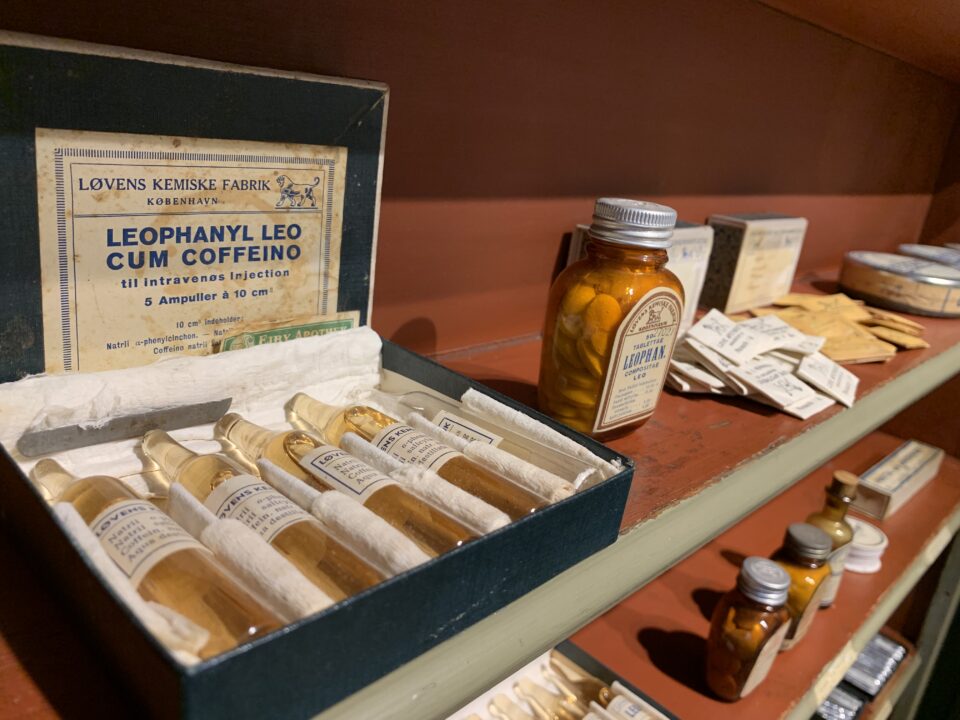10 March 2022
Museum assistant responsible for registration
Do you want to be part of developing a unique museum, which tells the story of some of Denmark’s pharmaceutical pioneers? Do you have an eye for detail, and are you interested in documenting and registration? Are you able to spot a good story, and do you have the creative pen to communicate that story?
If you answered ‘yes’ to these questions, you may just be LEO Historical Archives and Museum’s new museum assistant.
Document and communicate the history of the LEO Group
The old porter’s building at LEO Pharma’s headquarters is home to the LEO Historical Archives and Museum, which is run by the LEO Foundation. The LEO Museum gives LEO employees and stakeholders alike the opportunity to delve into the history of LEO Pharma and the LEO Foundation – from the back rooms of the original “Løveapoteket” (Lion Pharmacy) in central Copenhagen, to the present day and LEO Pharma’s latest endeavors.
The LEO Foundation is responsible for the operation and development of the LEO Museum. The museum itself is located at the LEO Pharma premises in Ballerup where LEO Pharma employees and key stakeholders can visit the museum, which showcases the entire more than 110 years of LEO history. Via tours, story-telling, and engaging dialogue, the LEO Museum is a cultural cornerstone for the entire LEO Group.
As museum assistant, you will be part of a small, dedicated team, which consists of a Head and two historians. LEO Museum is entering a new phase where the digitalization of both the archives and the communication is in focus. We recently acquired a new database, and we are facing the challenge of registering the collection from scratch over the coming year. You will be an essential part of this project. Your main task will be to assist in the registration of the large collection of archival material, photographs, artefacts, and original packaging.
You will also take part in the digital communication of the history of the LEO Group.
About the job and tasks
- Registration of artefacts and archival material in the database.
- Help develop a strategy for registration in the new database.
- Retrieving and moving artefacts and material in the physical archives.
- Drafting stories and blog posts for our internal communications channels.
About you
- A Master’s degree in Museology, History, Informational Science, Ethnology, Ethnography, or similar. New graduates are welcome to apply.
- Experience with database work.
- An interest in, and preferably experience with, digitalization.
- Excellent writing skills – both in Danish and English – and with an eye for a good story, and an interest in telling stories about the fascinating history of the LEO Group.
- An interest in documenting and archiving, with a systematic and analytical attitude.
- Structured and detail oriented.
- Independent and unafraid to take initiative.
The position is a full-time temporary position for a period of 12 months. Your primary workplace will be the LEO Pharma headquarters in Ballerup, Denmark.
How to apply
- Send your application and CV to Sophie Seebach, Head of LEO Historical Archives and Museum (sosee@leo-pharma.com) as soon as possible, and no later than 1 April 2022. We will be conducting interviews on an ongoing basis.
- Please do not hesitate to contact Sophie Seebach on +45 3112 9432 if you would like to know more about the position.
- For information about how we treat your personal data in connection with job applications, please visit leo-foundation.org/en/privacy-policy/
About the LEO Foundation
The LEO Foundation is one of Denmark’s largest commercial foundations. Its main objective is to ensure the long-term continuation and success of the pharmaceutical company LEO Pharma. Through its philanthropic activities the Foundation supports scientific purposes with the overall aim of improving the lives for people living with skin diseases worldwide.
As the majority owner of LEO Pharma, with its more than 110 years of unique history and 6,000 employees around the world, the Foundation considers LEO history an important asset.
